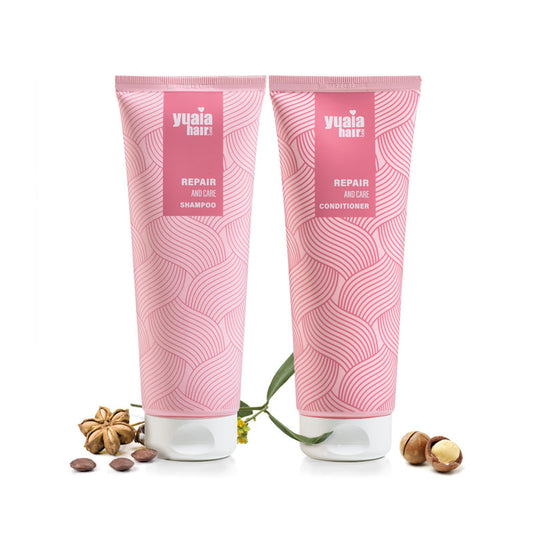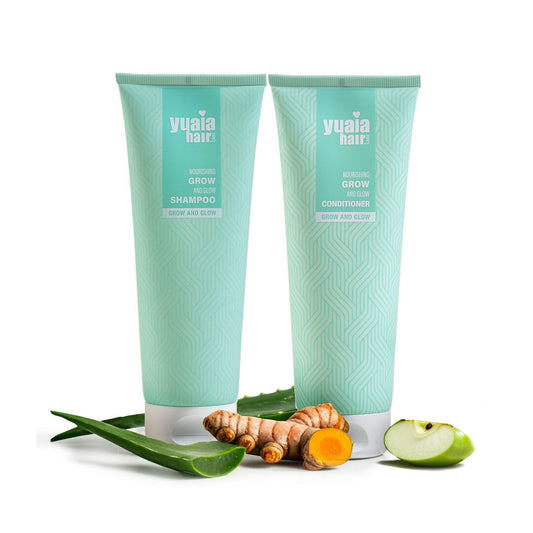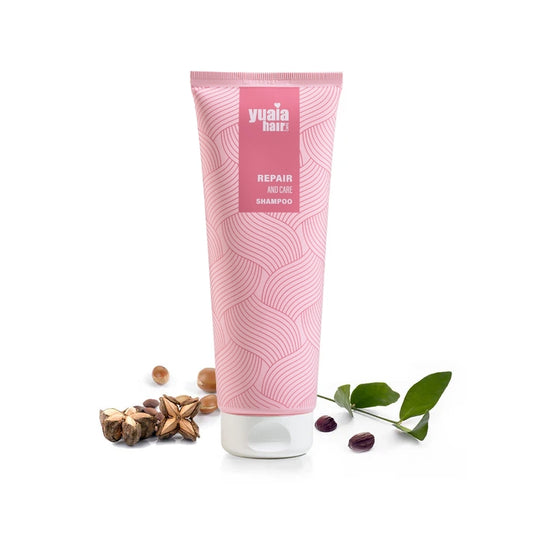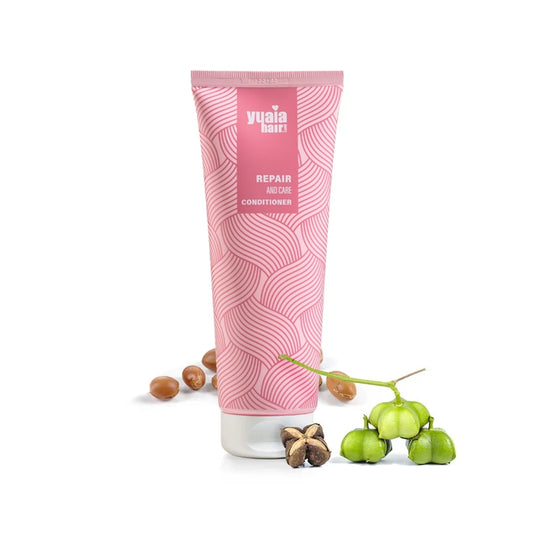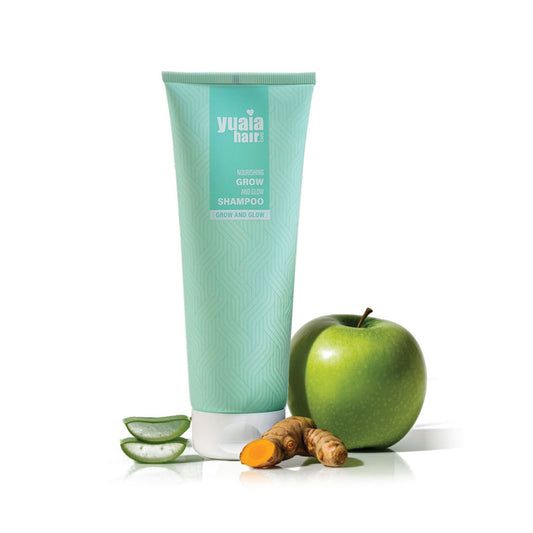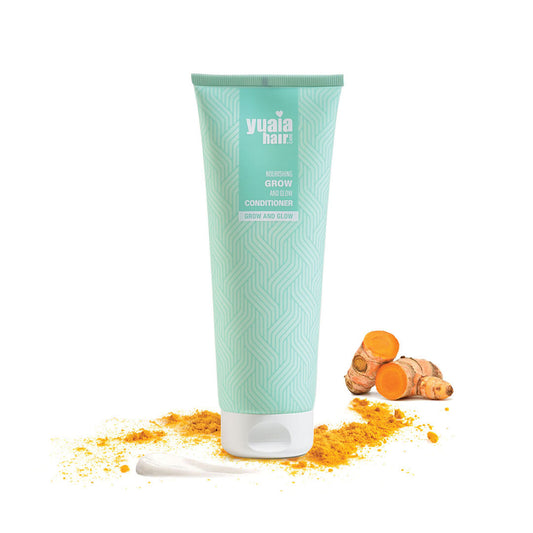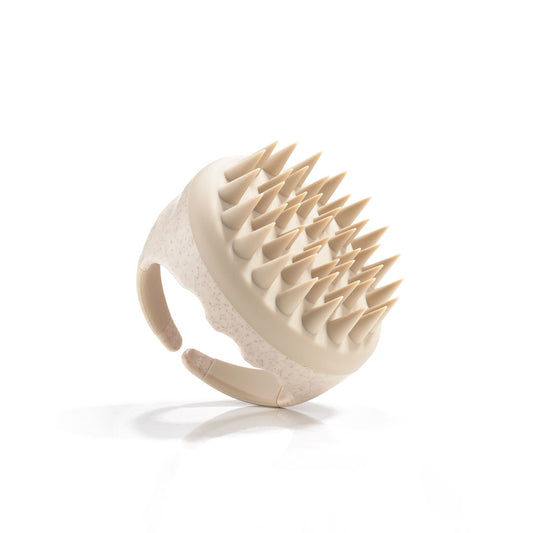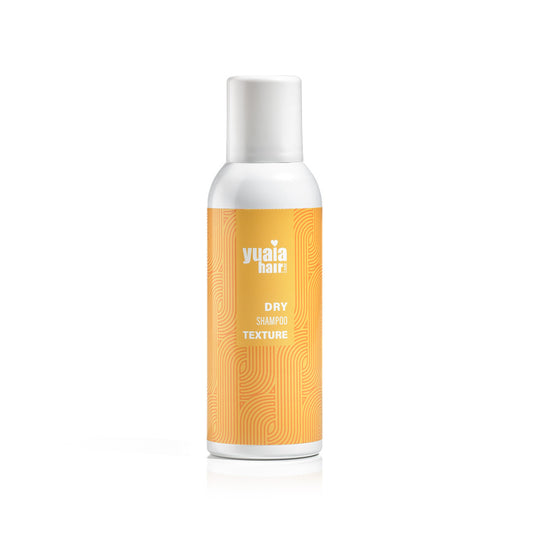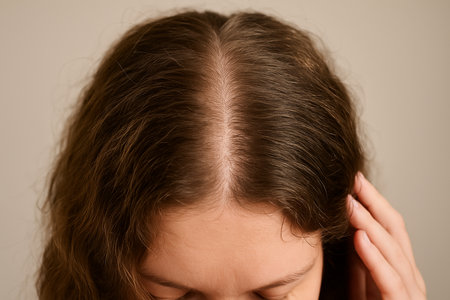
Common Challenges
Both dry and oily scalps present their own set of challenges. Those with a dry scalp often experience itchiness, tightness, and small, dry flakes that can be both uncomfortable and embarrassing. These symptoms are typically exacerbated by environmental factors like cold weather or the use of harsh hair products that strip the scalp of its natural oils.
Conversely, an oily scalp can lead to greasy hair shortly after washing, accompanied by large, sticky flakes that may adhere to the hair and scalp. This condition is often influenced by factors such as hormonal changes, genetics, and the use of heavy hair products that contribute to an overproduction of sebum. Understanding these common issues sets the stage for exploring effective care strategies tailored to each scalp type.
For those seeking solutions, Yuaia Haircare offers a range of products designed to address specific scalp concerns. Whether you're dealing with dryness or excess oil, finding the right products can make a significant difference in achieving healthier hair. Explore our hair care products to find the perfect match for your scalp's needs.
What is a Dry Scalp?
A dry scalp is characterized by insufficient sebum production, which leads to a lack of moisture. This condition often results in symptoms such as tightness, itchiness, and the presence of small, dry flakes that can be both irritating and noticeable. These flakes are typically white and lightweight, falling easily from the hair.
Causes
Several factors can contribute to a dry scalp. Environmental conditions, such as cold, dry weather, can exacerbate the lack of moisture. Additionally, the use of harsh shampoos that strip the scalp of its natural oils, as well as dehydration, can further lead to dryness. It's crucial to consider these causes when developing a care routine for a dry scalp.
What is an Oily Scalp?
An oily scalp is the result of overactive sebaceous glands, which produce an excess of sebum. This can make the hair appear greasy and lead to the formation of larger, stickier flakes, often associated with oily dandruff. The scalp may also feel heavy and itchy, adding to the discomfort.
Causes
Oily scalps can be influenced by a variety of factors, including hormonal changes, genetics, and the use of heavy hair products. Hormonal fluctuations during puberty or menopause can increase sebum production, while certain products can weigh down the hair, exacerbating oiliness.
Caring for Each Scalp Type
Dry Scalp Care
For those with a dry scalp, the focus should be on gentle cleansing combined with hydration. It's important to use products that nourish without stripping the scalp of its natural oils. Regular moisturizing treatments can alleviate symptoms like tightness and itchiness. Consider products that are made to hydrate and soothe, such as our Repair and Care shampoo and conditioner, which are formulated to infuse moisture into the scalp.
Oily Scalp Care
Managing an oily scalp requires a different approach. It's beneficial to use gentle cleansers that help regulate oil production without exacerbating the problem. Avoiding heavy products that can weigh down the hair is also key. Exfoliating the scalp periodically can help remove buildup and prevent irritation. Our Grow and Glow shampoo and conditioner are made to balance oil production while maintaining scalp health, offering a refreshing cleanse that doesn't over-dry.
Balancing Scalp Health
Maintaining a balanced pH level is essential for both dry and oily scalps. A balanced pH helps prevent irritation and supports the natural barrier of the scalp, which is important for overall hair health. Periodic deep cleansing can remove product buildup and environmental pollutants, ensuring that your scalp remains healthy and free from excess oil or dryness.
Finding Your Scalp’s Balance
Understanding your scalp type is the first step towards achieving better hair care results. By using products tailored to your specific needs, you can improve your scalp's condition and enhance your hair's natural beauty. Whether dealing with dryness or excess oil, taking a proactive approach to scalp care can lead to healthier, more manageable hair.
Frequently Asked Questions
How can I tell if I have a dry or oily scalp?
To determine your scalp type, observe how your scalp and hair feel a day or two after washing. A dry scalp will often feel tight and may have small, dry flakes, while an oily scalp will appear greasy and feel heavy. Conducting a simple tissue-paper test on your scalp can also help indicate oiliness.
Can my scalp type change over time?
Yes, your scalp type can change due to factors such as hormonal fluctuations, aging, and changes in climate or lifestyle. It's important to regularly assess your scalp's condition and adjust your hair care routine accordingly.
How often should I wash my hair based on my scalp type?
For dry scalps, washing your hair two to three times a week is typically sufficient to avoid stripping natural oils. For oily scalps, more frequent washing, such as every other day, may be necessary to manage excess oil production. However, it's important to use gentle, suitable products for your scalp type.
What ingredients should I look for in products for my scalp type?
For a dry scalp, look for products with hydrating ingredients like aloe vera and glycerin. For an oily scalp, seek out products with oil-balancing ingredients such as tea tree oil and witch hazel. Opt for natural options that soothe and balance the scalp without harsh chemicals.
 2-5 day delivery
2-5 day delivery
 25.000+ satisfied customers
25.000+ satisfied customers
 Satisfaction Guarantee
Satisfaction Guarantee



















